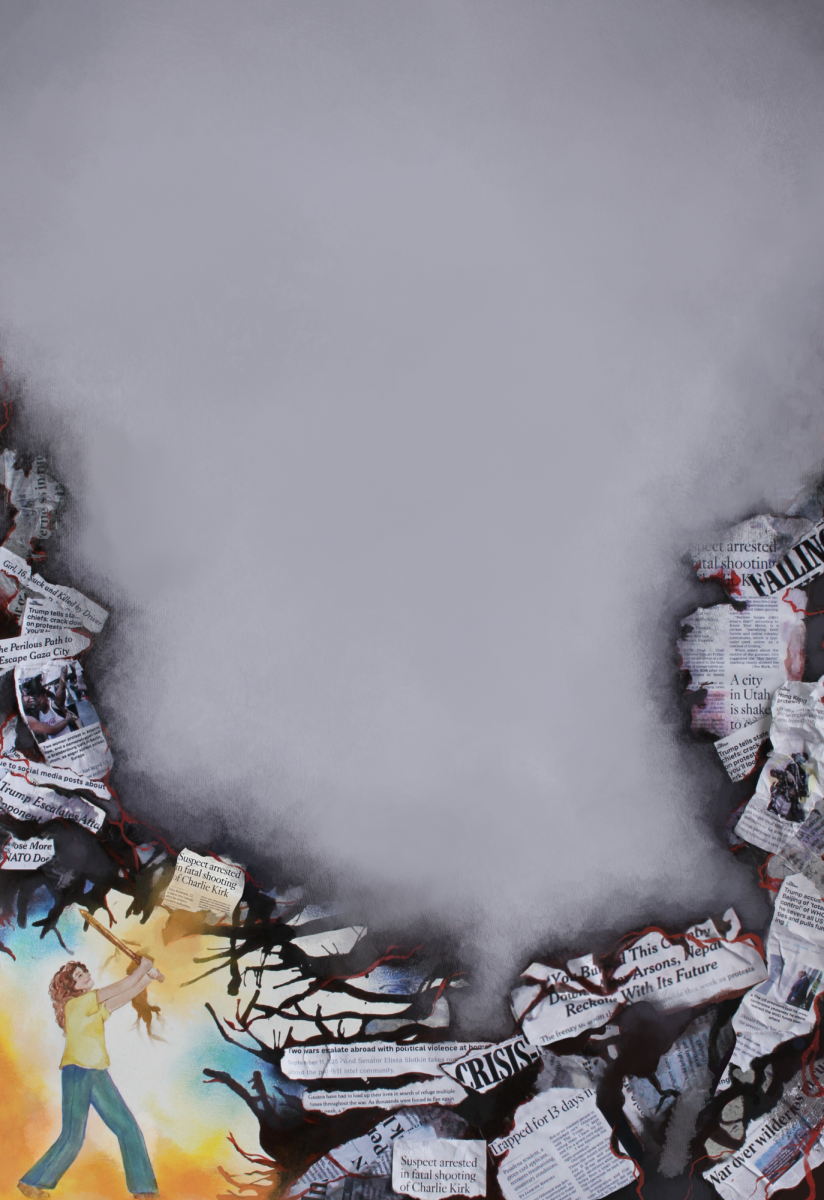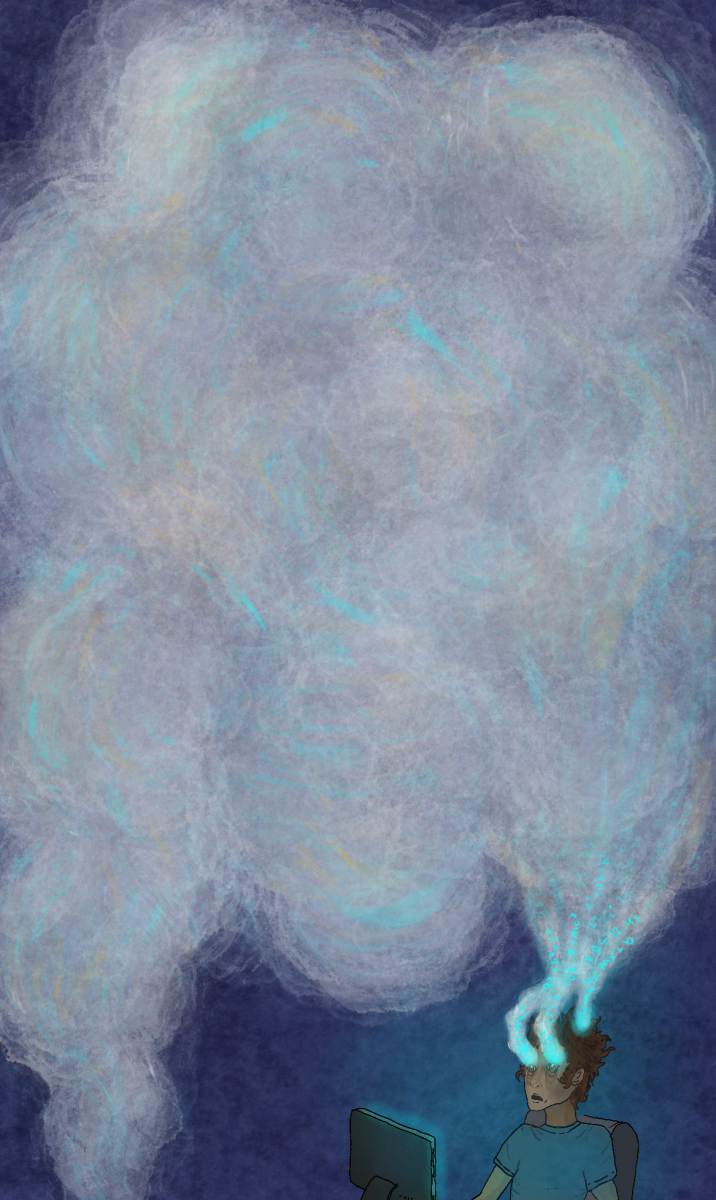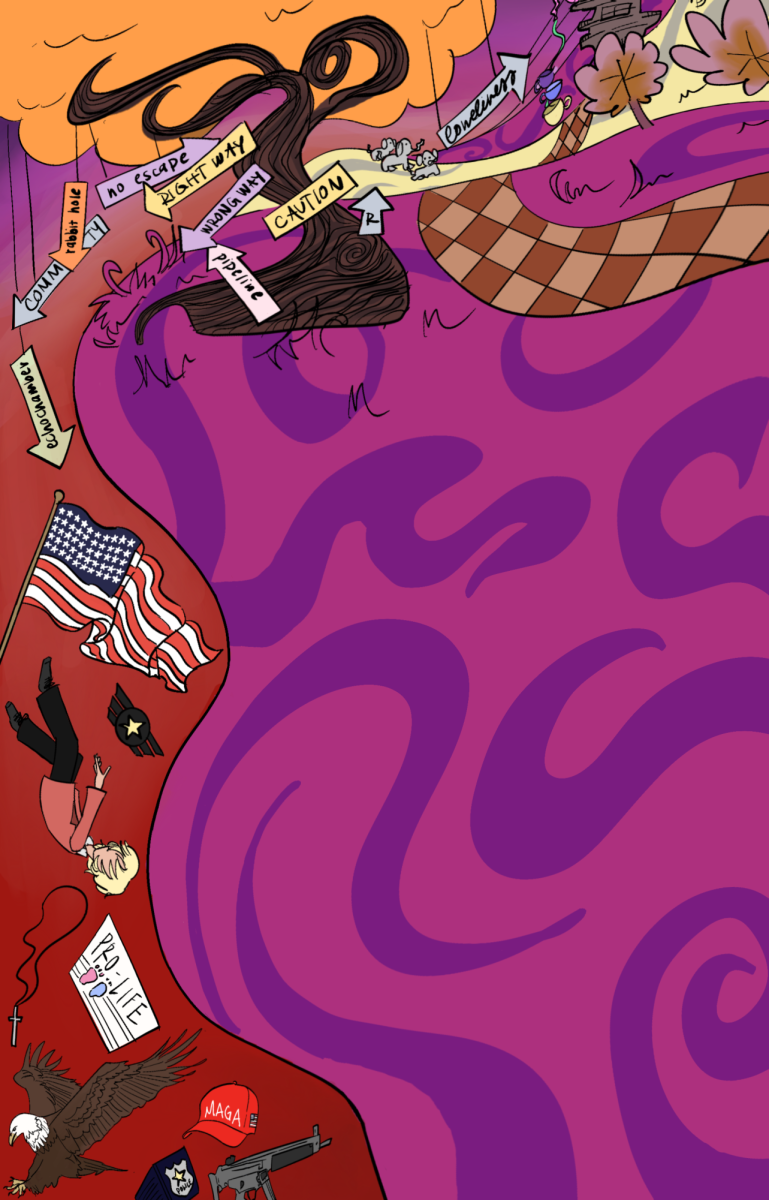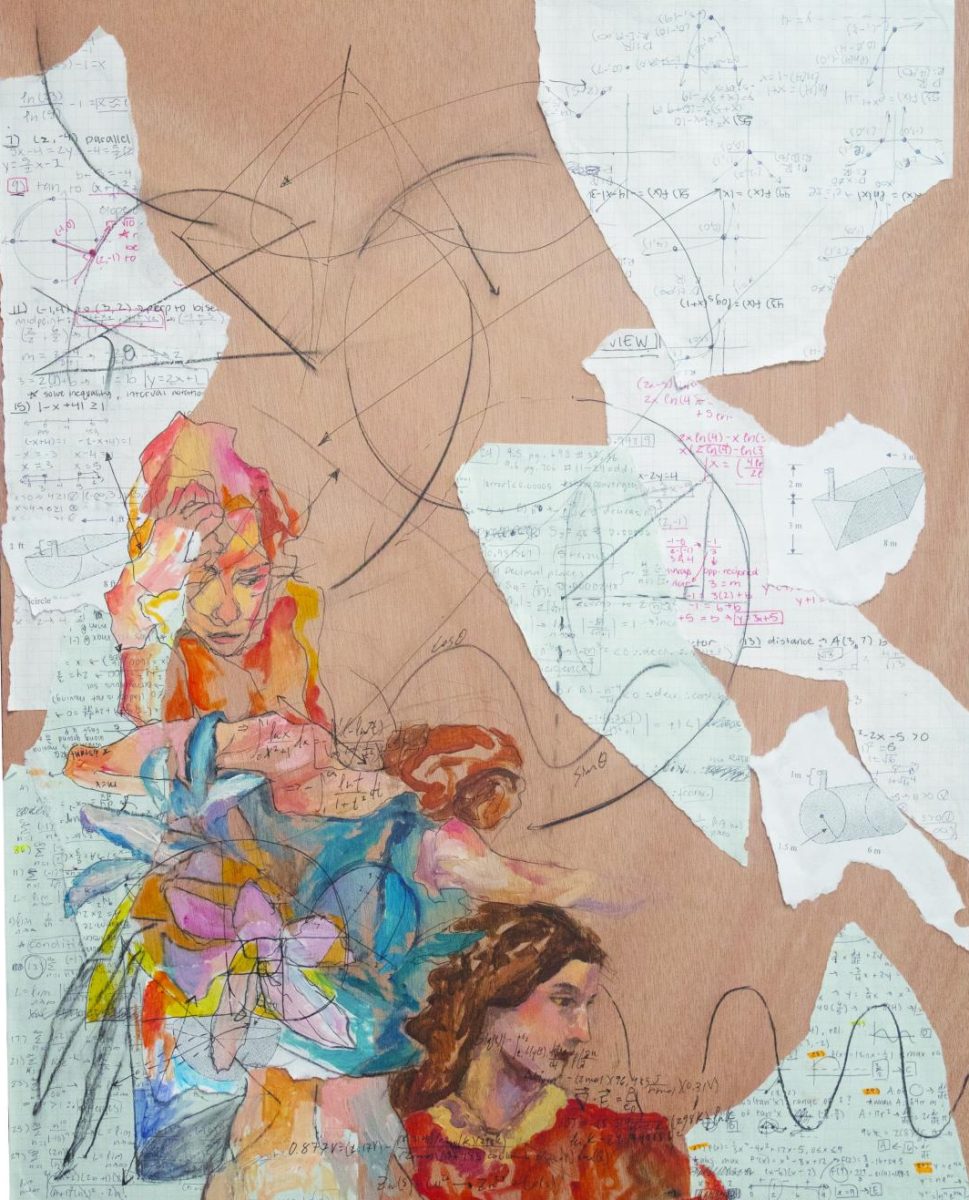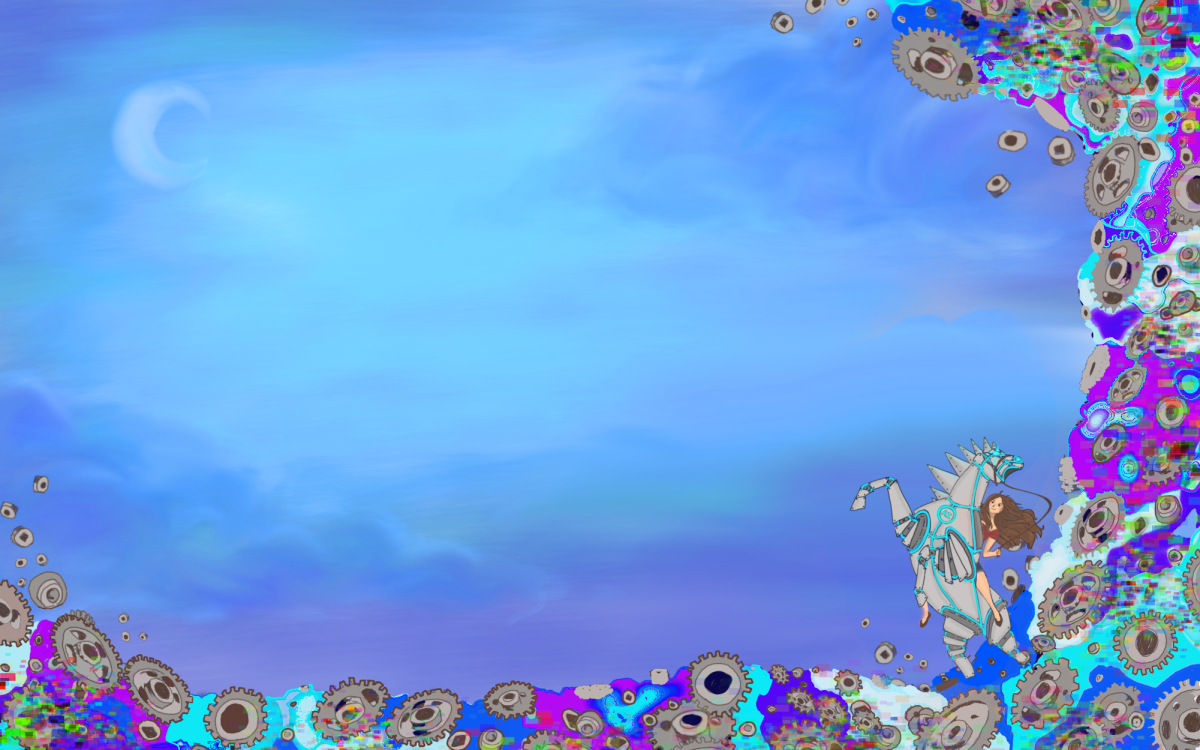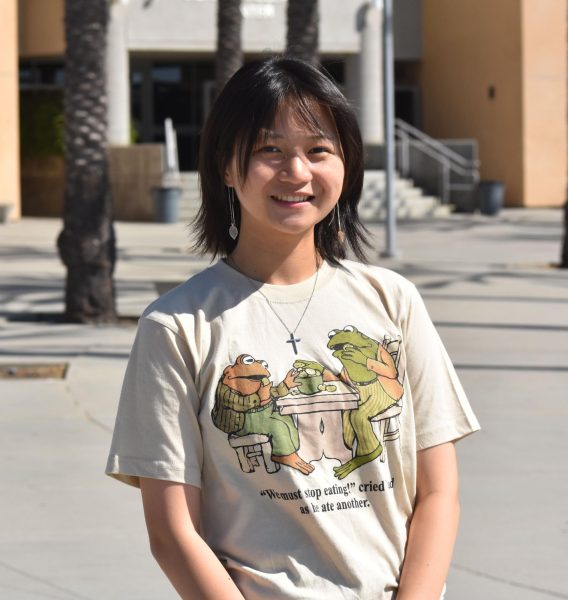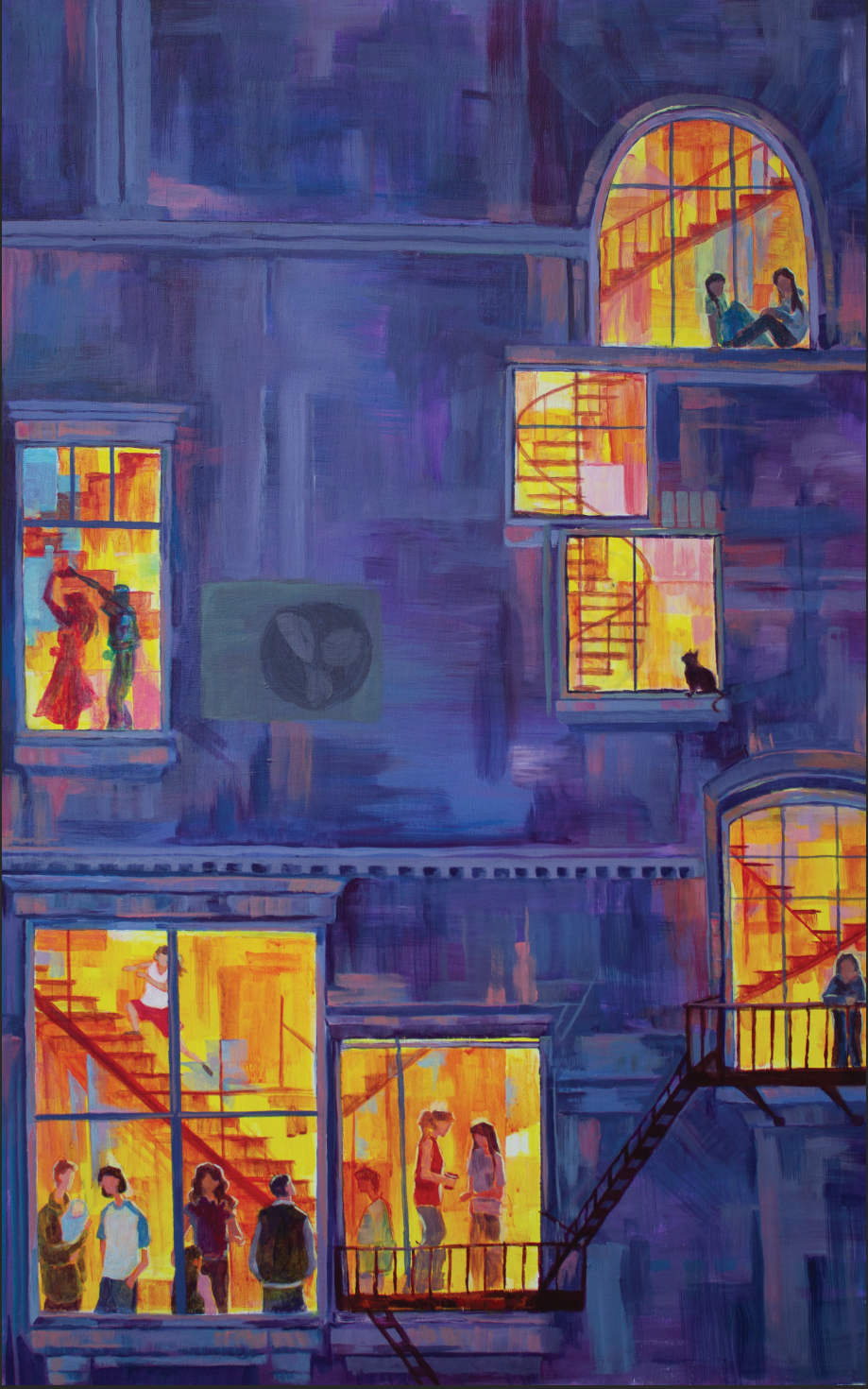
A sickening snap sounded from Alex Tajbakhsh’s (12) left knee as he warmed up for a soccer game in his sophomore year. Falling to the ground, Tajbakhsh felt his lifelong dream of becoming a professional soccer player begin to collapse with him as a numbing pain shot through his leg.
Prior to the injury, Tajbakhsh had spent hours upon hours practicing on the field every single day, his mind fixated on pursuing soccer for the rest of his life. However, after suffering a tear to his left ACL that he later received surgery for, he had to stop playing soccer for the rest of the season.
This injury was initially devastating, however, it eventually became a pivotal point for Tajbakhsh’s own growth in other facets of his life. In particular, it gave him time to immerse himself in new subjects.
“I really wanted to become a professional [soccer player], but as a result, I didn’t want to [compromise] my academics, so I only took the very upfront basic level classes,” Tajbakhsh said. “When I [injured] my left knee, I figured this was a good time to expand myself. [I thought], ‘I’m really driven to do this soccer thing, but outside of soccer, maybe I can try some other things as well and see how I react when I’m taking on more of a heavier load.’”
It’s through this expansion of interests, where Tajbakhsh said he was able to experience the most growth and fulfillment.
“Instead of focusing on this one straight path, this linear progression, I allowed this curiosity to seep into my mind and expand myself,” Tajbakhsh said. “And then I realized there’s so many other areas in life where I could also be doing a little bit more. I could be intriguing myself a little bit more. I could be stepping into other pathways as well. And when I realized how interesting other things are as well, then I kind of had this shift in perspective. I wanted to try new things on top of just soccer and my recovery. I learned how to crochet and sew clothes, and I learned that I really liked mathematics and I started taking my very first AP class—AP calculus—and I also made so many new friends in my class.”
According to the chief of psychiatry at the University of Vermont and child psychiatrist Dr. Steven Scholzman, human brains are primed for this expansion and growth from ages 15 to 18.
“In a general sense, people around the world, across cultures, there are certain things that they do in common,” Dr. Scholzman said. “They step away from their family of origin, some more, some less, but they tend to step away. They take more risks, some more [than others], some less. We know that brain structure, which peaks around those risk taking qualities, is tied to the brain structure that is firmly in place around age 16, 17, 18, and then sticks around till around age 25, 26.”
Just as Tajbakhsh learned more about himself and climbed to new heights through his pursuit of new interests, Anne Xie (12) developed a passion for learning after arriving in high school.
Prior to freshman year, Xie didn’t have to work hard to ace her classes. She never had to ask her teachers or peers for help; everything just made sense. However, after enrolling in AP Chemistry her freshman year, Xie realized that it would take a lot more than a couple independent study sessions at home to pass the class.
Even so, Xie said it was hard to break out of her old habit of self-reliance and wanting to do everything right the first time to instead, be willing to ask for help and spend time going through things.
“In middle school, I’d be able to figure things out I didn’t know [from a] Google search,” Xie said. “But when you get to the point where you don’t know how to ask the question you need answered, [then] going to teachers or even just peers—asking [them] and learning to be okay with being wrong and not knowing something while still trying to work to understand something, [was a change] I definitely had to grow into. I’m still sort of in the [mindset] where I want to do everything by myself before going to someone else, but I think I’ve improved on that front throughout high school.”
One of the things that Xie believed to have greatly helped her shift her mentality was being surrounded by people who were excited to learn.
“Being around people who are positive about something makes you so much more positive about that same thing,” Xie said.
This type of change is natural, said Dr. Scholzman, as during adolescence, particularly from the ages 15 to 18, the human brain is primed towards moving away from the familiar as new contexts are introduced.
“You could have a teacher who’s different from another kind of teacher you’ve had,” Dr. Scholzman said. “Maybe they’re not even that different, but because you’re at this age where you’re looking for those differences, you see the difference, even if you wouldn’t have seen it when you were. And those differences introduced into you ideas that your brain is, at that point in time, primed to receive. It’s because of that, then you broaden your sense of who you are, or you discard the sense of who you have been told you are or who you thought you were, and you start looking for a new use.”
To Dr. Scholzman, it’s this stage of brain development, when people begin to forge their own paths, that makes high school so unique.
“The brain develops from the bottom up and insulates—meaning that it’s more efficient—in the more primitive regions of the brain,” he said. “Primitive doesn’t mean bad. Those things are there to give you kind of biologic permission to take risks, despite the fact that most species with brains as big as ours are gonna try like heck not to take a risk because it’s just too dangerous. But at this age, fascinatingly, it becomes dangerous not to take a risk because otherwise, you get stuck.”
And this risk, for Xie, manifested in the form of taking AP Literature this year.
“The reason why I took the classes I did and kind of kept pushing myself is because I genuinely was interested in the subjects,” Xie said. “Taking AP Literature this year [was] maybe not the greatest decision for me in terms of my grade. I could have taken an easier class and probably been very okay with that, but because I had somewhat lost my passion for reading before and I wanted to regain that.”
Similarly, as Tajbakhsh immersed himself in new subjects, he found a passion for math and tutoring.
“I became drawn to tutoring because I realized not only as a tutor can I meet new people, help them out in the studies they need, but I can also refine my own understanding of the courses I’ve already taken and I’m tutoring them in,” Tajbakhsh said. “I can even think about better ways to convey that knowledge and then in being able to convey that knowledge, I have a better understanding of it myself.”
For Jordyn Nygren (12), it took a leap of faith to decide to pursue theatre in college.
Freshman year, Nygren knew what she wanted to do with her life, but lacked the confidence to actualize it.
According to Nygren, the support she received from her family, friends, and in particular, theatre director Robert Townsend are what helped to shape her aspirations for the future.
“The theater director, Robert Townsend, [has] been the most consistent part of my theater career because he’s been here since freshman to senior year as a teacher,” Nygren said. “He’s been my biggest supporter and just always hyping me up, telling me, ‘You can do this professionally.’ People have told me that I am good at [theatre] and getting more confident with the fact that people like what I do and like to hear me perform and sing and do all that also made me a lot more confident. Freshman year, I was so nervous — which I still am — before I went on to perform. But [now] I know I’ve got it.”
Nygren said that having that community in theatre as a constant in her life helped ground her.
These constants — or unchanging places or circumstances of comfort and stability — are vital to adolescent development, according to Dr. Scholzman.
“We have naturalistic studies [where] we can look at what’s happened in circumstances where people have, often through necessity, not had constants,” Dr. Scholzman said. “The very fact that we have constants a lot of the time in the way we exist in pretty much every culture suggests that constants are good for us during this time when we start to branch out in other ways. In circumstances where people don’t have those constants, it becomes harder for them. The risks that they’re taking are of necessity as opposed to curiosity.”
Although knocked off the path of his initial dream in soccer, Tajbakhsh found himself unearthing interests he hadn’t allowed himself to pursue before.
“The moment you step into high school, you can choose your own classes, you can join your own clubs, you can make more friends and meet new people from different grades as well,” Tajbakhsh said. “I see this opportunity to take this straight linear line [of growth] and create some concavity and maybe take on more at the same exact time, [allowing] yourself to expand to a higher domain. As you create concavity, you’re taking on a heavier load. It’s not just like you can magically do it all of a sudden. It’s gonna be tough—especially when you’re only used to that linear progression. During my junior year, I think that was more of the pivotal moment in my high school time, where I started to create concavity.”
For Tajbakhsh, this formation of concavity in his life grew rapidly once he discovered his love for math and all types of studying.
“When I expanded myself and I started meeting new people and putting my mind into different subjects and aspirations and seeing how they all connected together, it was just the best feeling,” Tajbakhsh said. “When I had that [injury], I decided, ‘while I’m doing my rehabilitation every single day, let me try and take an AP class as well, and honors class,’ ‘let me try and throw in an extracurricular and tutor some other students on the sideline and see how I can handle that and see how I’m able to kind of evolve as a person and the things I do.’”
According to Dr. Scholzman, there are many unexpected twists and turns in life, but that’s part of what it’s all about: taking those leaps of faith and trying new things.
“The world’s kind of a mess right now,” Dr. Scholzman said. “There will be lousy times—that’s just part of being human. But generally, there’s gonna be really great times too. And if you’re not feeling that you’re having at least some great times, it’s worth poking around and trying new things. Keep track of who you are, but go try new things. Your brain is set up for it, and if you keep your head, you grow a lot.”


